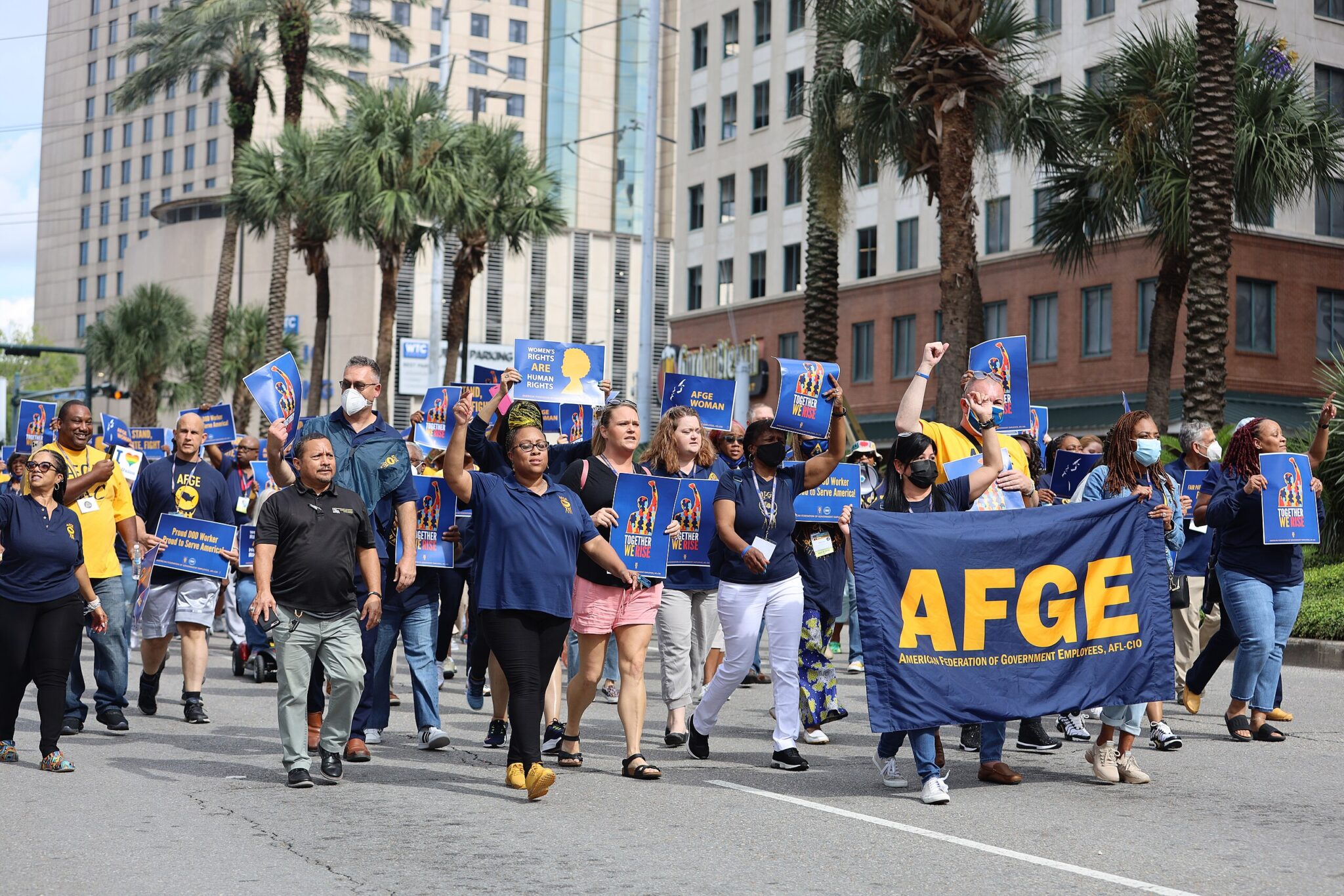
Otto Barenberg is a student at Harvard Law School and the Digital Director of OnLabor.
In today’s news and commentary, unions fight unlawful purges of federal workers and a union drive at a North Carolina Amazon facility falls short.
Last week, the Trump Administration’s plans to gut the federal workforce — without Congressional authorization, and contrary to separation-of-powers principles — became concrete. The Department of Housing and Urban Development is firing 50% of its 9,600 employees, cutting jobs from the Agency’s civil rights enforcement division, disaster rebuilding team, and data collection units, among others. The U.S. Forest Service announced plans to fire 3,400 employees. New leadership at the Consumer Financial Protection Bureau has terminated hundreds of staffers, with plans to shutter the watchdog entirely. Mass firings have also affected — or are expected imminently at — the Centers for Disease Control and Prevention; the Department of Homeland Security; the National Nuclear Security Administration, which maintains America’s nuclear weapons; the Department of Veterans Affairs; the Environmental Protection Agency; the Department of Education; the Department of Energy; and others.
The purges, which Trump and his right-hand-billionaire Elon Musk have said will cover 10% of the federal government’s 2.4 million civilian employees, have thrust federal workers’ unions onto the frontlines of legal and political resistance. Last week, a coalition of unions sued the Trump Administration to block the mass firings, arguing the President exceeded his authority under Article II of the Constitution and usurped Congress’s sole power to appropriate funds. As Holden reported, unions have also brought suit to bar the Musk team from accessing highly sensitive data on the federal workforce. And unions have brought lawsuits at individual agencies — including a legal challenge to the Trump Administration’s plans to gut the CFPB. As John reported last week, the threats to federal workers have led to record-high membership in the American Federation of Government Employees, the largest federal workers union. The AFGE’s annual legislative conference last week featured its biggest-ever rally and dozens of high-profile Democratic lawmakers.
Amazon workers at a Garner, North Carolina fulfillment center voted down a union drive by a 2,447 to 829 margin. The union, Carolina Amazonians United for Solidarity and Empowerment (CAUSE), had advocated starting wages of $30 per hour, up from the current starting wage of $18, as well as more vacation time and longer lunch breaks. Deploying the catchphrase “I am not a robot,” CAUSE had hoped to spearhead the second successful unionization push at an Amazon facility, following a Staten Island warehouse’s successful bid in 2022. Leaders of CAUSE have alleged “relentless and illegal efforts to intimidate us” by the online retail giant, but have not yet indicated whether they will bring legal challenges against the election’s outcome.






Daily News & Commentary
Start your day with our roundup of the latest labor developments. See all
February 27
The Ninth Circuit allows Trump to dismantle certain government unions based on national security concerns; and the DOL set to focus enforcement on firms with “outsized market power.”
February 26
Workplace AI regulations proposed in Michigan; en banc D.C. Circuit hears oral argument in CFPB case; white police officers sue Philadelphia over DEI policy.
February 25
OSHA workplace inspections significantly drop in 2025; the Court denies a petition for certiorari to review a Minnesota law banning mandatory anti-union meetings at work; and the Court declines two petitions to determine whether Air Force service members should receive backpay as a result of religious challenges to the now-revoked COVID-19 vaccine mandate.
February 24
In today’s news and commentary, the NLRB uses the Obama-era Browning-Ferris standard, a fired National Park ranger sues the Department of Interior and the National Park Service, the NLRB closes out Amazon’s labor dispute on Staten Island, and OIRA signals changes to the Biden-era independent contractor rule. The NLRB ruled that Browning-Ferris Industries jointly employed […]
February 23
In today’s news and commentary, the Trump administration proposes a rule limiting employment authorization for asylum seekers and Matt Bruenig introduces a new LLM tool analyzing employer rules under Stericycle. Law360 reports that the Trump administration proposed a rule on Friday that would change the employment authorization process for asylum seekers. Under the proposed rule, […]
February 22
A petition for certiorari in Bivens v. Zep, New York nurses end their historic six-week-strike, and Professor Block argues for just cause protections in New York City.